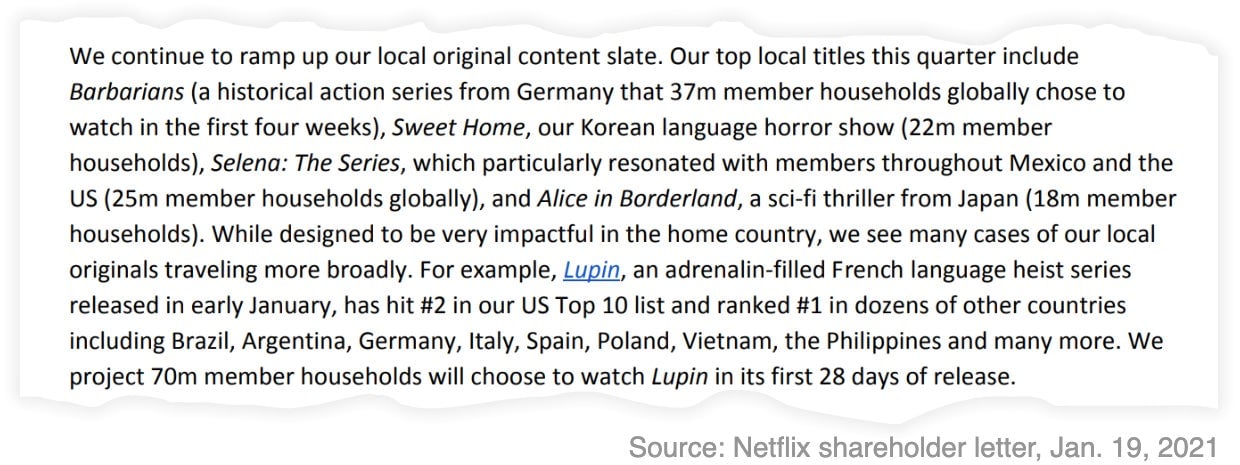Netflix is ushering in a golden age of French TV
In a global industry dominated by Hollywood (pdf), French cinema has long punched above its weight.


In a global industry dominated by Hollywood (pdf), French cinema has long punched above its weight.
In 2018, of the 696 European films released outside Europe, 191 were French (pdf, p. 48). France has earned the most Academy Award nominations for best international feature film and classics like Amélie, The Artist, or The Intouchables have turned into mainstream hits.
But until recently, French television lagged behind. While France is one of the three leading producing countries in Europe for high-end series—a nebulous concept that typically refers to “short series made for primetime“—its shows didn’t have broad popular appeal in the same way its movies do. That’s partly down to money; Disney or Universal can spend more on promotion than French studios. But it’s also true that the global market for non-English-language shows is relatively small and, while it’s grown over time, the competition is fierce. (Think of hits like Money Heist or Unorthodox.)
With the advent of the major streaming platforms, French TV’s fortunes have changed. If you’re reading this, you’ve likely seen Lupin, Call my Agent!, The Hook Up Plan, or Marseille. Netflix said that 70 million subscribers watched at least 2 minutes of Lupin within its first month on the platform. It’s not just Netflix; “The Bureau,” Éric Rochant’s poignant spy series, is on Amazon, and it’s become a global success, with several remakes in the works.
The quality of French television shows has gone up, while streaming platforms have “played a major role in showcasing foreign series, boosting the appetite of global audiences for local shows, and maximizing their exposure around the world,” Olivier Wotling, director of fiction for Arte, told Variety.
Netflix especially has bet a lot into the French market. It is working on 20 new French series and movies, and just opened its first office in Paris. It’s a good investment for the streaming service, which in a recent letter to shareholders (pdf) laid out a strategy of developing original foreign-language shows with wide appeal: As Adam Epstein reports, at least 87% of Lupin‘s viewers are not from France. (It’s worth noting that many people are stuck at home, with more time on their hands to explore Netflix’s catalog and take a chance on shows with subtitles.)

It wasn’t always like this. When Netflix came to France in 2014, the industry “feared the streaming platform would squeeze out independent producers and disrupt the theatrical model around which the entire French film industry is built,” as Nadia Neophytou recently wrote for Quartz. The low point came in 2017, when Netflix pulled out of the Cannes Film Festival after organizers said movies without theatrical release date wouldn’t be eligible for awards.
And yet, years later, it’s clear the streaming platform has been key to the global success of French TV. Former French culture minister Franck Riester said as much during the launch of Netflix’s Paris HQ in Jan. 2020 (link in French): “Between Netflix and France, it hasn’t always been easy. But, in the end, we realized that we couldn’t really live without each other.”